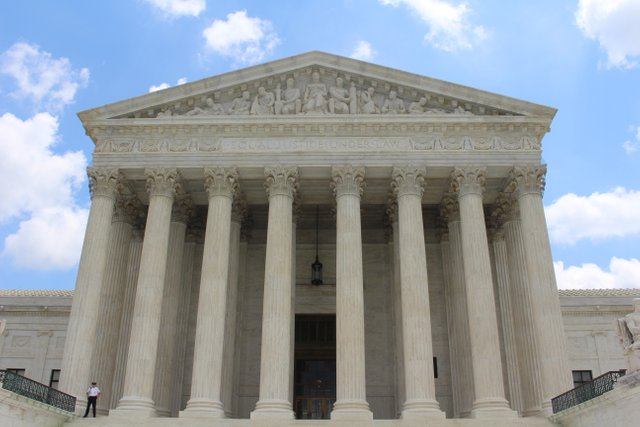Could this court reveal Satoshi Nakamoto's identity, when all other investigations have failed?
Who is Satoshi Nakamoto?
I bet that many people here have heard, maybe even participated, in the debates about Craig Wright and David Kleiman. Is one of them (or both) the mysterious and elusive creator(s) of bitcoin? These debates have played out here on Steemit and many other places.

Photo by Andrew Worley on Unsplash
I do not want to get into his debate much in this post. Instead, I want to ponder how the discovery process in a lawsuit and the power of the courts to compel parties to give up information (and punish them harshly if they refuse) might finally reveal who is Satoshi, even when so many other investigations have failed.
Kleiman v. Wright
First, if you do not already know, it is key for my thought experiment that you get the basics of a new lawsuit in federal court in Florida between Kleiman's estate and Wright. Gleaned from a law.com report on the suit, here are some essential facts and allegations:
- Kleiman died in 2003. His brother sued Wright on behalf of Kleiman's estate.
- Wright & Kleiman met in 2003 and together mined the first 50 bitcoins back in 2009. They founded a bitcoin mining company in 2011.
- Kleiman's estate alleged Wright stole intellectual property and 1.1 million bitcoin worth $10.2 billion.
- Lawsuit said Wright "used forged signatures on legal documents to cheat Kleiman’s estate out of its fair share."
- Wright's side of the story will begin coming out on April 16 when he must file his answer or probably a motion to dismiss this suit.
Okay. Now, how will the parties begin to hash out the proof for these claims? How could the courts force out the truth about Satoshi's identity?

Photo by Claire Anderson on Unsplash
Discovery process
When a plaintiff sues a defendant, the lawyers on both sides work hard to prove up their claims through discovery. The plaintiff will try to get the defendant to give up any and all documents and records that could prove he did whatever bad thing is alleged in the case. The plaintiff will send interrogatories (i.e. a long list of questions) that the defendant must answer.
The defendant will fire back with document requests and questions of his own, trying to gather evidence for whatever defense he's got (i.e., I did not steal your bitcoins, they were rightfully mine; or you gifted them to me; etc).
Both sides must give up the records and truthfully answer the questions, for the most part. However, they can complain about a request being overbroad or inapplicable to the lawsuit. In case of a dispute, the court decides who is right. This brings us to my next point.
Power to compel production
Before a party takes a dispute to the court, by filing a motion to compel discovery, he should meet with the other side and try to work it out peacefully. Why? Judges hate discovery disputes, so a party risks pissing off the judge by acting immature here.

Photo by Nik MacMillan on Unsplash
But if they can't agree, the judge must decide. The court will issue an order that enforces the decision. That decision must be followed or there are consequences.
Sanctions and Contempt
If a party ignores a court order to produce evidence, the court could hold them in civil contempt of court. The worst thing that can happen is a court could throw someone in jail for disobeying its order to give up records. The court could fine them too. That's harsh and rare. More commonly, the court could sanction the offending party by ordering him to pay large sums of money to the other side. There could also be consequences in the case itself: A judge could stop the naughty side from using a bit of evidence that could help his side, or worse: Kill the entire lawsuit! It's called a "death penalty sanction" and it's harsh and rare.
Application in Kleiman vs. Wright
Here it goes. Let us apply all this info to learning Satoshi's identity. Kleiman's estate wants to prove he owns the 1.1 million bitcoins, and that Wright stole them from him, while Wright must counter with some argument that they were his in the first place, or Kleiman gave them to him as payment for work or a gift or something. Both sides will get all relevant records and interrogate each other. If they try to lie or hide something, they could face harsh consequences, so there's motivation to play in good faith.
We can sit around all day and post on forums or write on blogs to debate whether Wright or Kleiman are or were Satoshi. It is fun! Still, it's all speculation. The real facts could come out in this lawsuit. I'm excited to follow what happens.
Questions for you
- If you were Kleiman's lawyer, what records, documents, and questions would you want from Wright? Private keys? Emails? Drafts of bitcoin white paper? What?
- Same question, but from Wright's point of view. What's out there that might prove his defense or prove his side of the story?
He can sign a transaction with his known key if he still has access to it. That can prove you are the owner of the address.